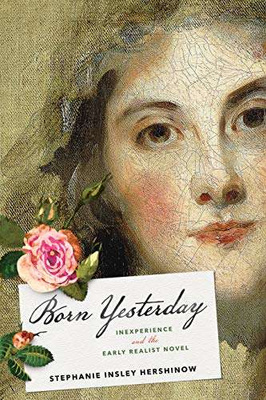Born Yesterday Inexperience and the Early Realist Novel
- Drawing on bold close readings, Born Yesterday alters the landscape of literary historical eighteenth-century studies and challenges some of novel theory's most well-worn assumptions.
Wydawnictwo
Johns Hopkins University Press
Stephanie Insley Hershinow
Potrzebujesz pomocy? Masz pytania?Zadaj pytanie a my odpowiemy niezwłocznie, najciekawsze pytania i odpowiedzi publikując dla innych. 
